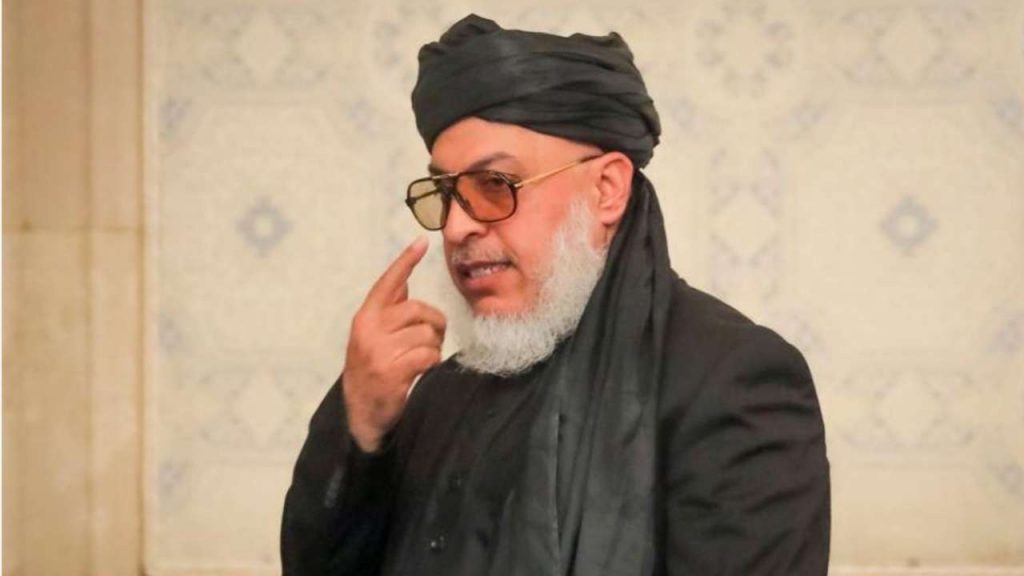A window of opportunity seems to be opening for India to reach out to and mend its relations with the Taliban after a key member of the Taliban leadership made a carefully scripted statement August 28 that India is “very important for the subcontinent” and his group is keen on continuing Afghanistan’s cultural, economic, political and trade ties with India “like in the past.”
The overture, first since the Taliban stormed into Kabul August 15 and took firm control of Afghanistan, was made by Sher Mohammad Abbas Stanekzai, deputy head of Taliban’s office in Doha. He read out in Pashto a 46-minute video message that was broadcast on the group’s social media platforms and Afghanistan’s Milli TV.
The development comes after India’s position in the affairs of Afghanistan became extremely precarious and its foreign policy of avoiding the Taliban like plague appeared to be proving too costly. India seemed to be out of the game in Afghanistan after having acted as its closest neighbour for the past 20 years when it collaborated with the Afghanistan government that was propped up and backed by the US. This left Pakistan in the driving seat in Afghanistan post-Taliban takeover and it is feared Pakistan will not only draw the contours of Indo-Afghan relationship but will also smuggle terrorists, belonging to a plethora of outfits, into Indian territory and undo the structural changes the Indian government has done to Jammu & Kashmir.
Interestingly, Stanekzai was at the Indian Military Academy in Dehradun in the 1980s as part of training for Afghan army cadets. In 1996 also he had played a similar peace-making role with India after the Taliban’s first takeover of Kabul when he was Deputy Foreign Minister of a caretaker government. Now this overture comes at a time when India has evacuated its entire diplomatic contingent from its embassy in Kabul and its foreign policy in regard to Afghanistan seemed to be lost in the wilderness.
It doesn’t look like a happenstance that the Taliban are apparently softening their stand on India hours after the latter toned down its pugnacity against the Taliban at an important resolution of the United Nations Security Council August 27. In a significant development suggesting desperate behind the scene activities by India’s foreign affairs establishment to reach out to the Taliban, India dropped the dirty word, ‘Taliban,’ from the resolution. This was done two weeks after India, chairing the UNSC for August, had specifically mentioned the Taliban in a resolution urging them not to allow the Afghanistan soil to be used by terrorists as a launching pad for subversive activities against other countries, meaning primarily India. The changed resolution retained all the other words directed at reining in terrorist groups.
The changed wording suggested two things. First, the USA, which is known to be controlling the UNSC’s decisions, was urging India not to adopt a hostile stand on the Taliban. Secondly, India was equally desperate to build bridges with the Taliban. Stanekzai’s statement indicates India’s gesture is striking a chord with the Taliban too. He stated the Taliban leadership is looking forward to working with India and strengthening its political, economic and trade ties with India. He even insisted trade with India is so important that the Taliban would even keep the air corridors open for doing trade with India.
This is significant since Pakistan has always blocked overland transit, trade and access between India and Afghanistan. His remarks that the Taliban would consolidate Afghanistan’s relations with Turkmenistan and sort out the problems holding up the Turkmenistan-Afghanistan-Pakistan-India (TAPI) gas pipeline project sound reassuring.
Similarly, he touched on the importance of the Chabahar port in connecting India with Afghanistan and the Central Asian countries. The International North-South Transport Corridor (INSTC) is key to fulfilling India’s ambition of building a vast network of ports and freight corridors leading to Eurasia. India has already invested billions of rupees to develop the Chabahar port and roads and railway network to tap iron ore deposits in Hajigak mine in central Afghanistan and natural resources in Turkmenistan, Uzbekistan and Kazakhstan. Once the INSTC is built, Afghanistan’s dependence on Pakistan for export would be drastically minimised. The cost of Indian exports to Afghanistan and Central Asian countries will come down by 60 per cent and timing by 50 per cent.
Over the last two weeks, Taliban spokespersons Suhail Shaheen and Zabiullah Mujahid have also articulated the group’s views on relations with India. New Delhi invested $3bn in development projects, offered scholarships to Afghan students, and helped construct the parliament building at a cost of $90m, earning massive goodwill in the country. India has undertaken about 400 projects covering almost all 34 provinces in Afghanistan.
The Taliban leader’s detailed message on international trade and commerce keeping in mind the pivotal role India can play in collaboration with Iran indicates the Taliban’s anxiety to get international recognition and develop the country’s economic potential independent of Pakistan. If the Taliban are really serious, things may not look as bleak for India as they do now.
